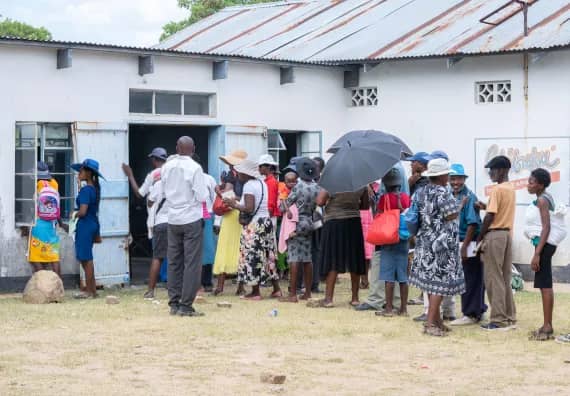Nkosentsha Khumalo
Brunette Tshuma
Concerned villagers from Ward 9 in UMzingwane district, Matabeleland South Province have made a passionate plea to local Parliamentarians to advocate for the construction of a clinic that is more accessible for their community.
The villagers, who often have to travel long distances on foot or rely on slow, unreliable modes of transport have highlighted the urgent need for a healthcare facility within close proximity.
Compounding the problem, the closest clinics to Ward 9 are located in neighbouring Wards 10 and 15, situated an arduous 16 kilometres away.
The distance, coupled with treacherous terrain and a lack of reliable transport system, poses significant challenges for the residents, particularly in cases of emergencies.
Bekezela Moyo, the councilor of Ward 9, expressed his frustration during an interview, lamenting the absence of a clinic in his ward.
The lack of healthcare facilities, coupled with the poor condition of the roads, has forced residents to make perilous journeys on foot or by ox-drawn carts in order to receive medical attention.
Moyo emphasized the urgency of the situation, calling on local authorities to prioritize the construction of a clinic in the area.
In his own words, Councilor Moyo stated,
“We are facing a significant challenge in our Ward as we do not have a clinic. The nearest clinics are 16 kilometres away, either at Mhlahlandlela in Ward 10 or Matobo Mission in Ward 15. This is a monumental struggle for our residents, especially for pregnant women.”
“Many have suffered miscarriages on the treacherous journey and some have tragically lost their lives, even those who were only suffering from injuries have bled to death along the way.”
Expounding on the difficulties facing Ward 9 residents, Moyo emphasized that the challenges did not end at the clinic.
“Sadly, the problems faced by our community are numerous. The roads leading to the clinics are in poor condition, making it difficult for transport to reach our residents, and our infrastructure is inadequate. This, coupled with the poor network coverage in our area, adds to the problems residents face when seeking healthcare.”
“The journey is treacherous,” revealed Martin Iden Sibanda, a resident of Sotshe Village, who echoed Moyo’s concerns.
“We have to travel across mountains to reach the nearest clinic, Mhlahlandlela, which is in Ward 10. This is not an easy journey, especially when one is sick or injured. The terrain is rough and the distance is long, often resulting in further health complications.”
Expanding on the dire circumstances faced by the community, Sibanda added,
“To access the clinic, we have to walk a distance of about eight kilometres from our village to the clinic, and then walk back the same distance once we have received treatment.
“This is extremely taxing, especially for those with serious conditions, where every minute could be the difference between life and death.”
“Even for expectant mothers, the journey is not without its dangers. Many are forced to relocate to the clinic for the duration of their pregnancies to avoid the risk of miscarriage due to the arduous travel conditions.”
Aligning with the sentiments of Sibanda and Moyo, the social welfare coordinator of Ward 9, also spoke of the challenges faced by young families in the area.
“A significant number of mothers in our ward are unable to bring their children for routine checkups and vaccinations,” the coordinator explained.
“The distance to the clinics and the difficulties of travel have made it nearly impossible for them to access the healthcare that their children need. This is particularly concerning as it can have serious implications for the health and well-being of the children in our community.”
Elaborating on the difficulties encountered by mothers, the social welfare coordinator revealed,
“Many mothers in Ward 9 are unable to transport their children for baby clinics for essential immunizations, such as the MR1 and MR2 measles injections.
“The long distances and lack of reliable transportation often prevent them from accessing these crucial healthcare services, which can put their children’s health at risk.”
“Also villagers struggle waiting for scotch cuts which is their only mode of transport, to carry them to Mhlahlandlela clinic hence they end up defaulting medication”.
Zim GBC News ©2024


